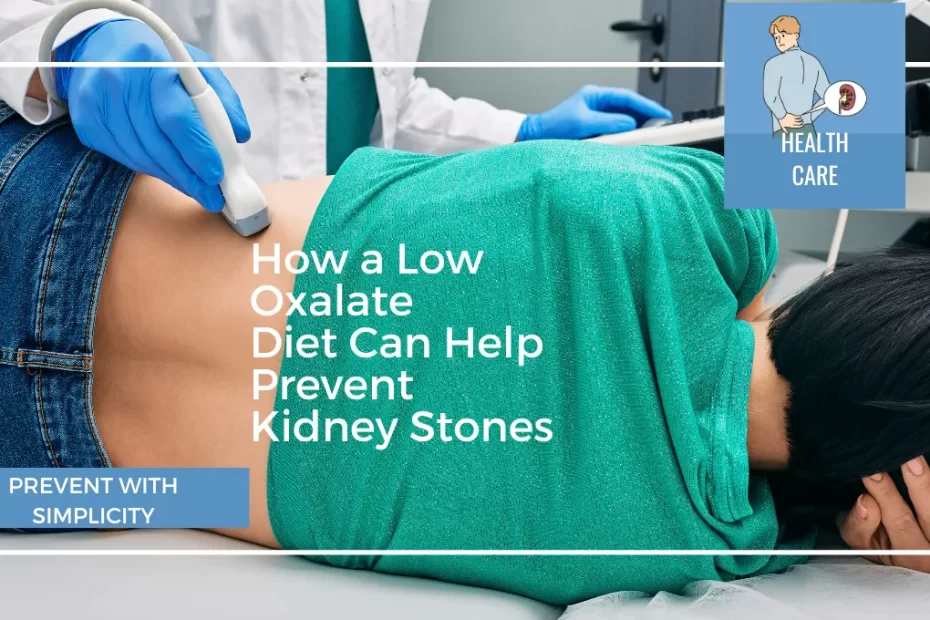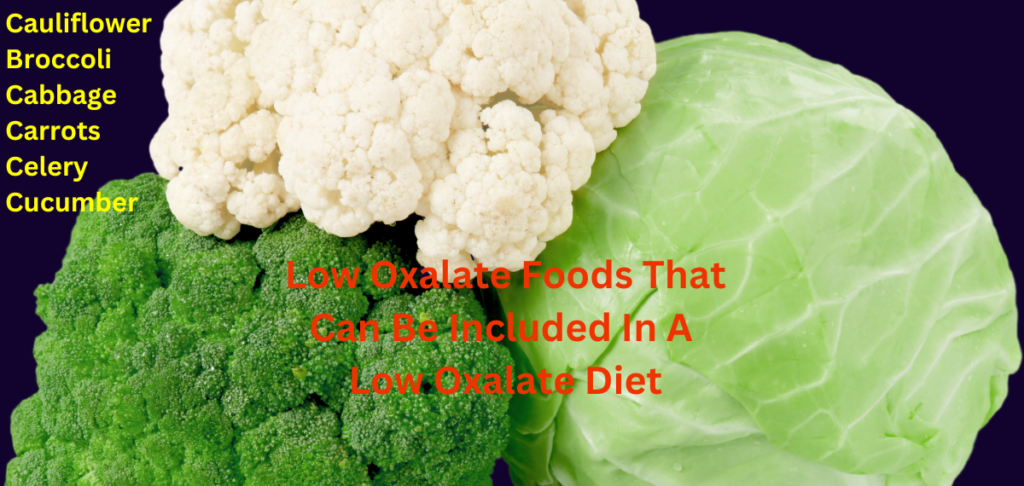Last updated on February 2nd, 2024 at 08:34 am
Kidney stones are hard deposits that form in the kidneys and can cause significant discomfort. One way to prevent and manage kidney stones is by following a low-oxalate diet. Oxalate, found in many foods, contributes to the formation of certain types of kidney stones.
Understanding Oxalate:
Oxalate Sources: Limit or avoid high-oxalate foods such as spinach, rhubarb, beets, Swiss chard, soy products, nuts, and seeds. It’s also important to moderate the consumption of medium-oxalate foods like berries, grapes, and legumes.
Calcium and Oxalate Binding: Consuming foods high in calcium along with oxalate-rich foods can help bind oxalate in the gut, preventing its absorption. Good sources of calcium include dairy products, fortified plant-based milk, and leafy greens.
General Dietary Guidelines:
Stay Hydrated: Drink plenty of water throughout the day to maintain adequate urine volume and reduce the concentration of oxalate in the urine.
Moderation is Key: While limiting high-oxalate foods, remember that not all foods need to be completely avoided. It’s about balancing your overall intake and spreading out oxalate-rich foods throughout the day.
Portion Control: Pay attention to portion sizes, as consuming large quantities of even low-oxalate foods can increase oxalate intake.
Despite the potential benefits of a low oxalate diet, it can be challenging to follow and may lead to nutrient deficiencies if not properly balanced. For this reason, it is important to work with a healthcare provider or registered dietitian to ensure that nutrient needs are being met while on a low-oxalate diet.
By following a low oxalate diet and adopting healthy lifestyle habits such as regular physical activity and maintaining a healthy weight, you can reduce the risk of kidney stone formation and better manage existing kidney stones.
Remember, it’s essential to consult with a healthcare professional or registered dietitian before making significant dietary changes, especially if you have underlying health conditions or are taking medication.
Simple Steps to Start a Low Oxalate Diet for Kidney Stone Prevention Today
Foods to Include in a Low Oxalate Diet
- Cauliflower
- Broccoli
- Cabbage
- Carrots
- Celery
- Cucumber
- Green beans
- Lettuce
- Onions
- Peas
- Potatoes (white or sweet)
- Radishes
- Tomatoes
- Zucchini
- Apples
- Berries (blueberries, strawberries, raspberries, blackberries)
- Grapes
- Melon
- Mango
- Papaya
- Pineapple
- Pears
- Oranges
- Grapefruit
- Lemon
- Bananas
- Cheese (cheddar, mozzarella, feta, brie, camembert)
- Milk
- Yogurt
Eating Mindfully: Foods with Elevated Oxalate
Oxalates, organic compounds found in many foods, can influence health in different ways. For some individuals, especially those prone to kidney stones or with specific dietary needs, consuming high-oxalate foods might be a concern. Being aware and eating mindfully can assist in maintaining balance and overall health.
Why Does Mind Oxalate?
Oxalates combine with calcium in the urine to form crystals, which can lead to kidney stones in predisposed individuals. Besides, excess oxalate can affect bone health and other bodily
The Importance of Calcium Intake about Oxalate Consumption
Contrary to what you might think, calcium is not your enemy when it comes to kidney stone prevention. Calcium can be your best friend in this battle. Here’s why: when you consume foods rich in oxalates, like spinach, almonds, or beets, calcium from your diet can bind with oxalates in your gut. This binding prevents oxalates from being absorbed into your bloodstream and, subsequently, from forming crystals in your kidneys.
So, what does this mean for you? You don’t need to completely cut out calcium-rich foods. Instead, focus on balancing your calcium and oxalate intake. Aim to include adequate calcium sources like dairy products, fortified plant-based milk, or leafy greens in your diet to help prevent oxalate absorption.
Other Dietary Factors that Contribute to Kidney Stone Formation
While oxalates play a role in kidney stone formation, there are other dietary factors to consider:
Sodium: High sodium intake can increase the risk of kidney stones by promoting calcium excretion through urine. To reduce sodium, limit processed foods, canned soups, and fast food. Opt for fresh fruits and vegetables, and cook at home to control your sodium intake.
Animal Protein: Diets high in animal protein, especially red meat and poultry, can lead to higher levels of uric acid and calcium in your urine. These substances can contribute to stone formation. Consider incorporating more plant-based protein sources like legumes, tofu, and nuts into your meals to reduce the risk.
Foods High in Oxalates: Think Twice Before Eating
- Spinach
- Rhubarb
- Swiss chard
- Beet greens
- Almonds
- Cashews
- Peanuts
- Soy products (tofu, tempeh)
- Wheat bran
- Bran flakes
- Chocolate
- Black tea
- Instant coffee
- Sweet potatoes
- Wheat bran
- Bran flakes
- Chocolate
- Black tea
- Instant coffee
- Sweet potatoes
Treatment for kidney stones depends on the size and location of the stone, as well as the severity of the symptoms. In some cases, small kidney stones can pass on their own with proper hydration and pain management. However, larger stones may require medical intervention.


